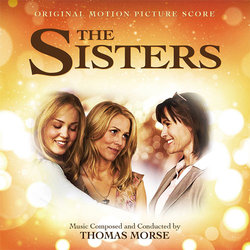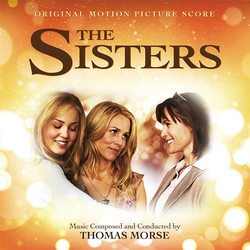The Sisters
Stay better informed and get access to collectors info!
| # | Track | Duration | |
|---|---|---|---|
| 1. | Memories of Father | 2:07 | |
| 2. | Sisters Theme Suite | 2:57 | |
| 3. | Old Friends | 0:41 | |
| 4. | How They Met | 2:19 | |
| 5. | Vincent and Marcia | 2:56 | |
| 6. | Nancy s Story | 2:07 | |
| 7. | I'm Not Going | 1:12 | |
| 8. | Back to Charleston | 1:59 | |
| 9. | Gary s Confession | 0:46 | |
| 10. | The Wedding | 4:38 | |
| 11. | I'm in Recovery | 1:20 | |
| 12. | Vincent Leaves | 5:49 | |
| 13. | I Sold the House | 1:16 | |
| 14. | The Crash | 4:29 | |
| 15. | Sisters End Titles | 3:00 | |
| 37:36 |
The Sisters
Added on Thursday, May 31, 2018
Anton Chekhov’s works meant the zenith of the literary realism that prevailed in the nineteenth century Russia. Social changes due to, among other reasons, the establishment of industry, the gradual abandonment of the rural areas, famine, or the objection to absolutism define the decline of the traditional society and lay the foundation of the subsequent Russian Revolution. During this period of discomfort and increasing uncertainty, writers such as Gogol, Dostoyevsky, Tolstoy and, finally, Chekhov kept their finger on the pulse of the existentialist feeling of society, analyzing the contradictions of the human soul and creating tales of an intense humanity. Chekhov obtained recognition in the fields of short story and theater, writing the play “Three Sisters”, played for the first time in the Moscow Art Theater in 1901. In 2004, the playwright Richard Alfieri adapted this play to a twenty-first century New York context. In “Sisters”, the surname Prozorov changed into Prior and the provincial setting moved to the metropolitan Manhattan. One year later, Arthur Allan Seidelman found in Alfieri’s version the source for a cinematographic production. The filmmaker holds the dubious honour of directing Arnold Schwarzenegger’s first film, the whimsical “Hercules in New York”, but he is also a director with an extensive theatrical experience (more than one hundred productions). Surrounded by an impressive cast (Elizabeth Banks, Maria Bello, Erika Christensen, Steven Culp, Tony Goldwyn and Mary Stuart Masterson), he also had the magnificent collaboration of Thomas Morse with the music.
Seidelman’s mise-en-scene aspires (although it barely reaches it) to the elegance, sophistication and exquisiteness of that bourgeois society described by Alfieri in his play, relying mainly on the excellent work of the cast and Chuy Chávez’s refined cinematography. Thomas Morse’s music gets in that spirit. As Jerry Goldsmith’s former pupil, Morse is fully aware of the importance of leitmotifs in these kinds of films, so settled in characters. From the reference to the dead father (“Memories of Father”) or the main theme for the three sisters (“Sisters Theme Suite”) to, for example, the assigned treatment to Marcia and Vincent’s relationship, the music serves as an emotional assembly between story and characters. Therefore, it is a score of an extraordinary thematic beauty which describes, in a deeply emotional way, the different conflicts that the characters face without being invasive or melodramatic. Winds (flute, clarinet), strings (harp, violin, double bass) and piano join forces to offer a solemn and refined, even funeral, sonority, much more achieved than the director’s narrative aspirations (listen, for example, to the track “The Wedding”, one of the most beautiful themes on this CD). Morse’s score incorporates in an organic way the use of preexisting music, such as Beethoven’s “Für Elise”, Brahms “Waltz 15” from “Opus 39”, and, quite especially, Schumann’ s “Of Foreign Lands and People”, which acquires a protagonist and fundamental role in the final climax (“The Crash”), without resting importance to the original music.
Rosetta Records’ edition allows us to rediscover and appraise a lesser-known score on its fair value.



